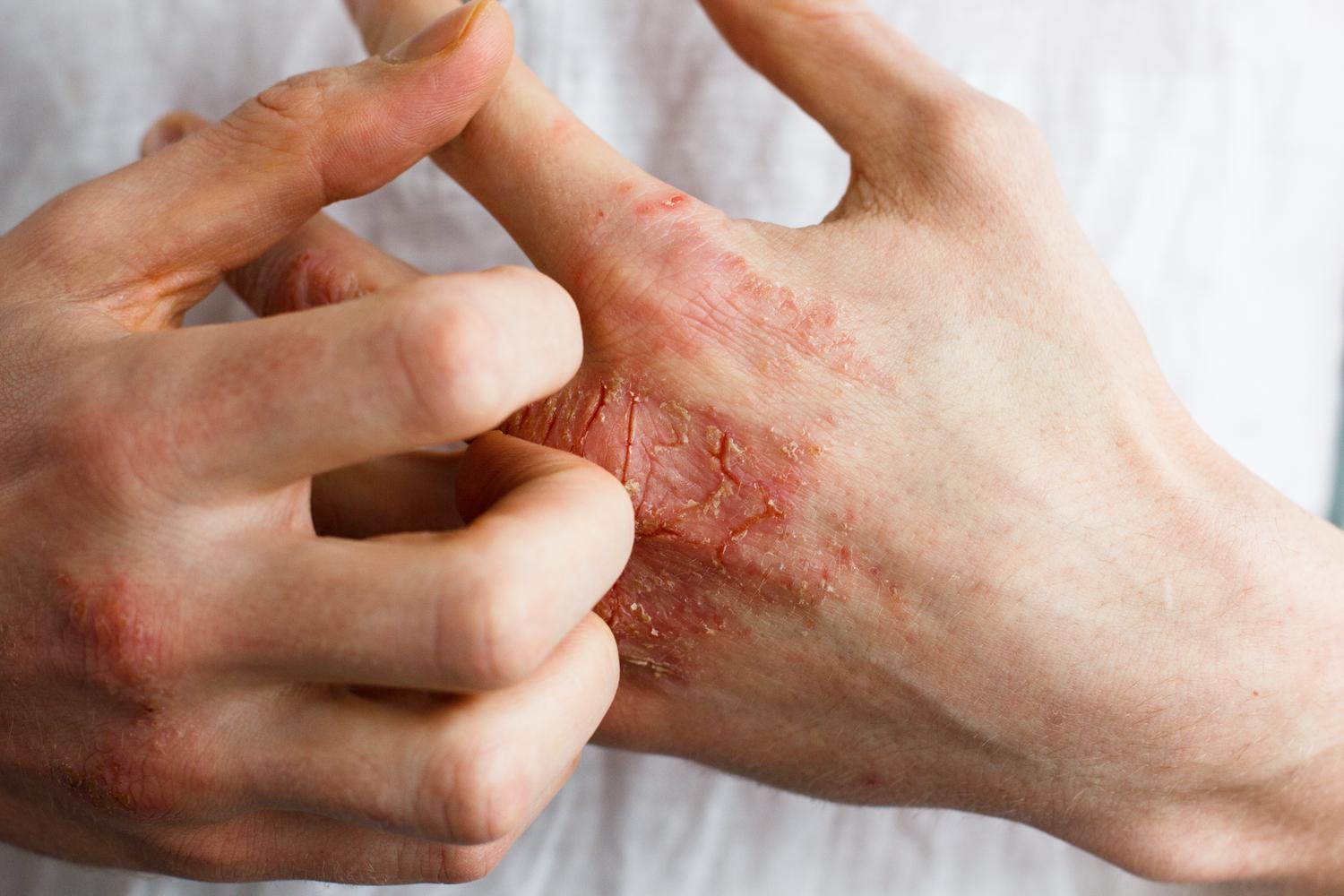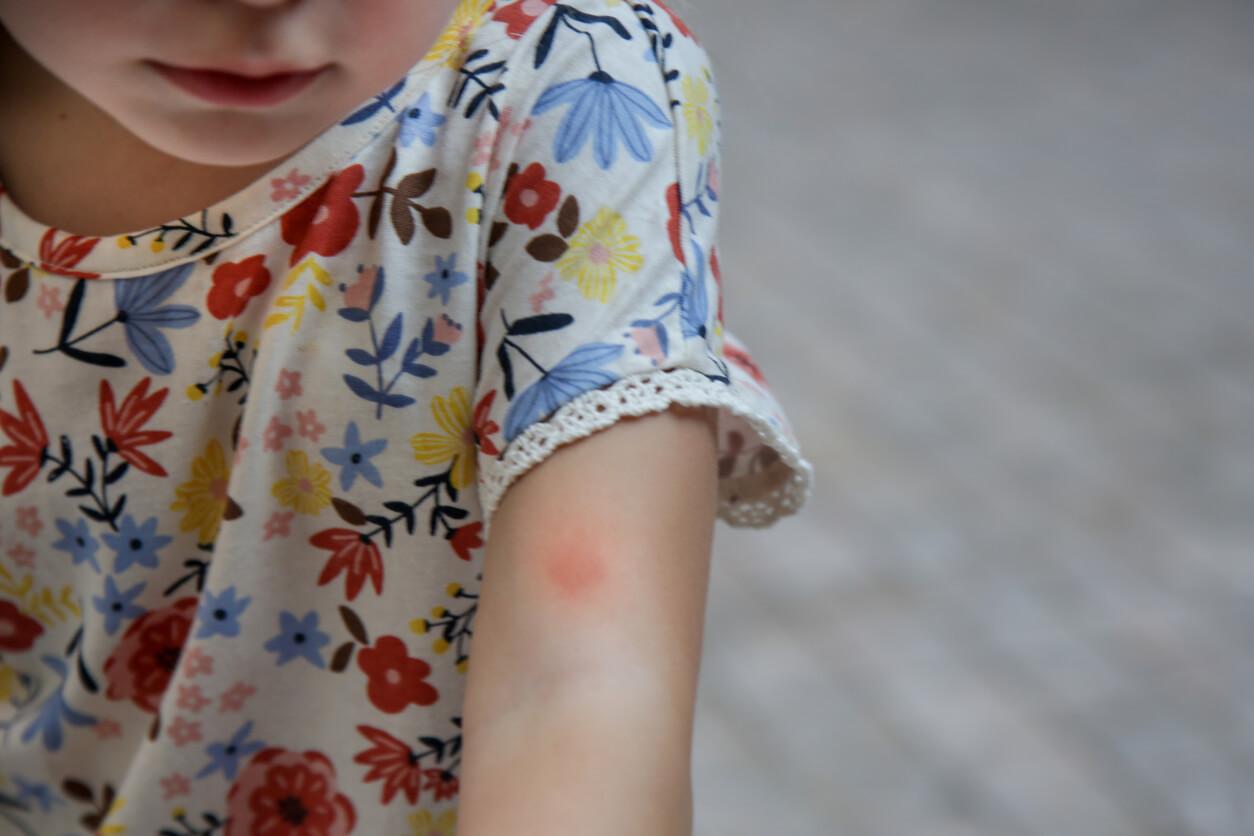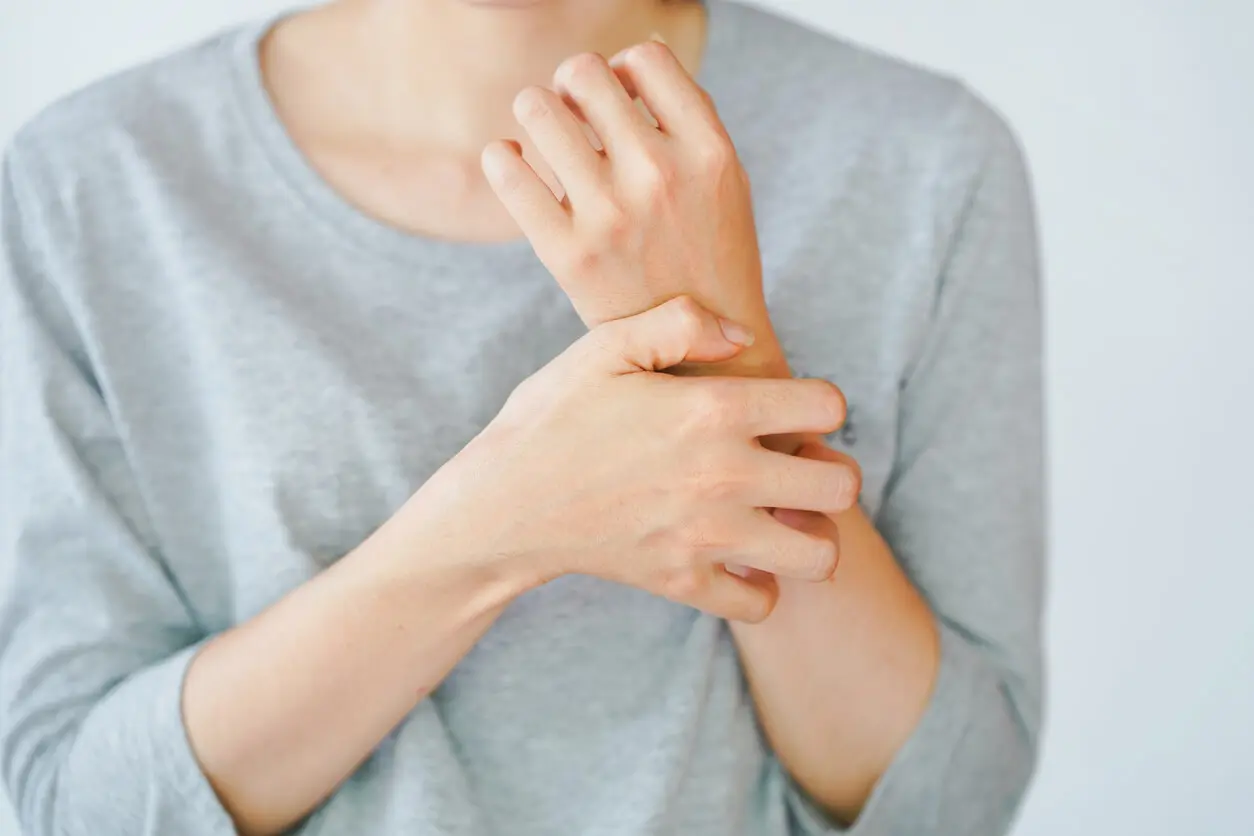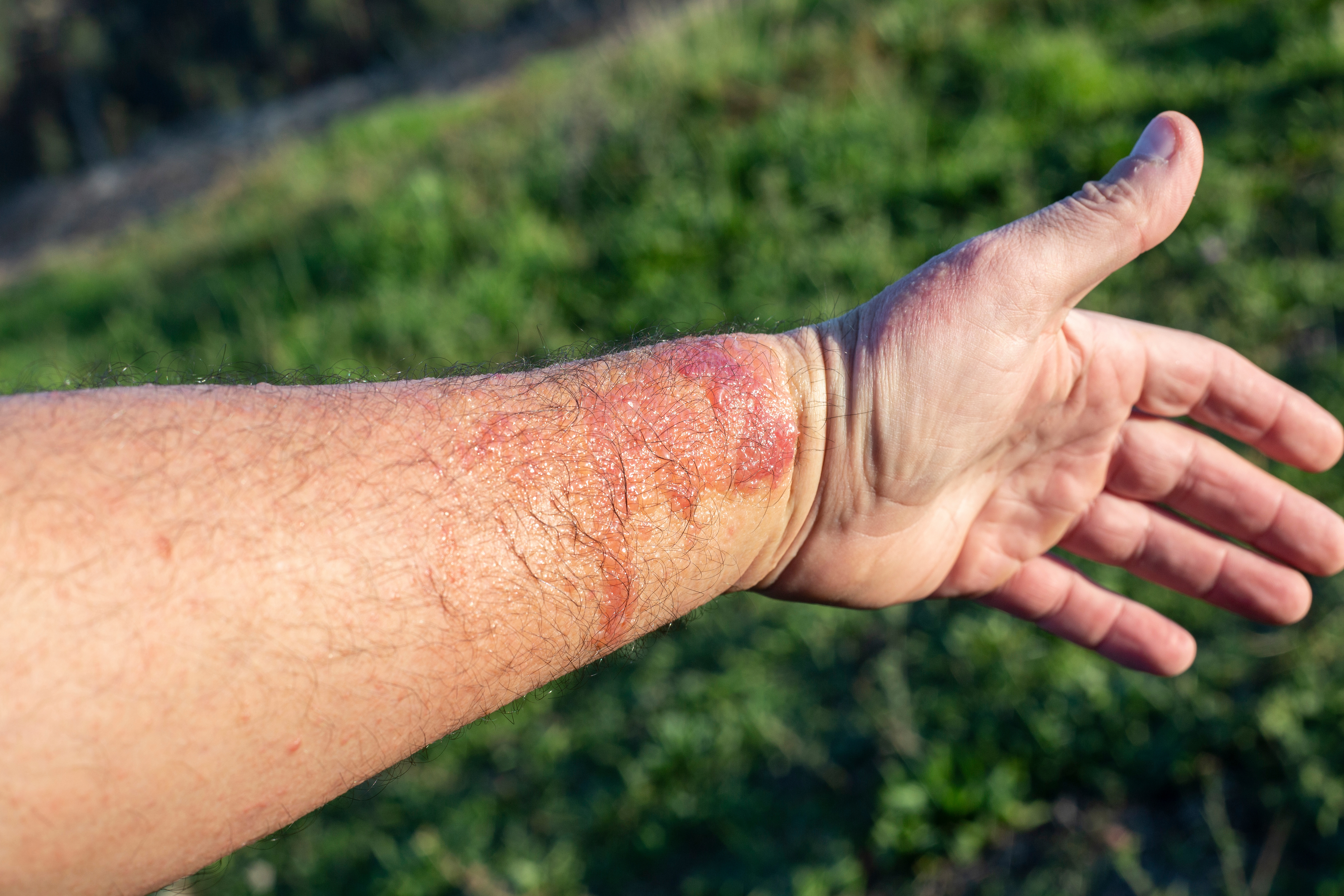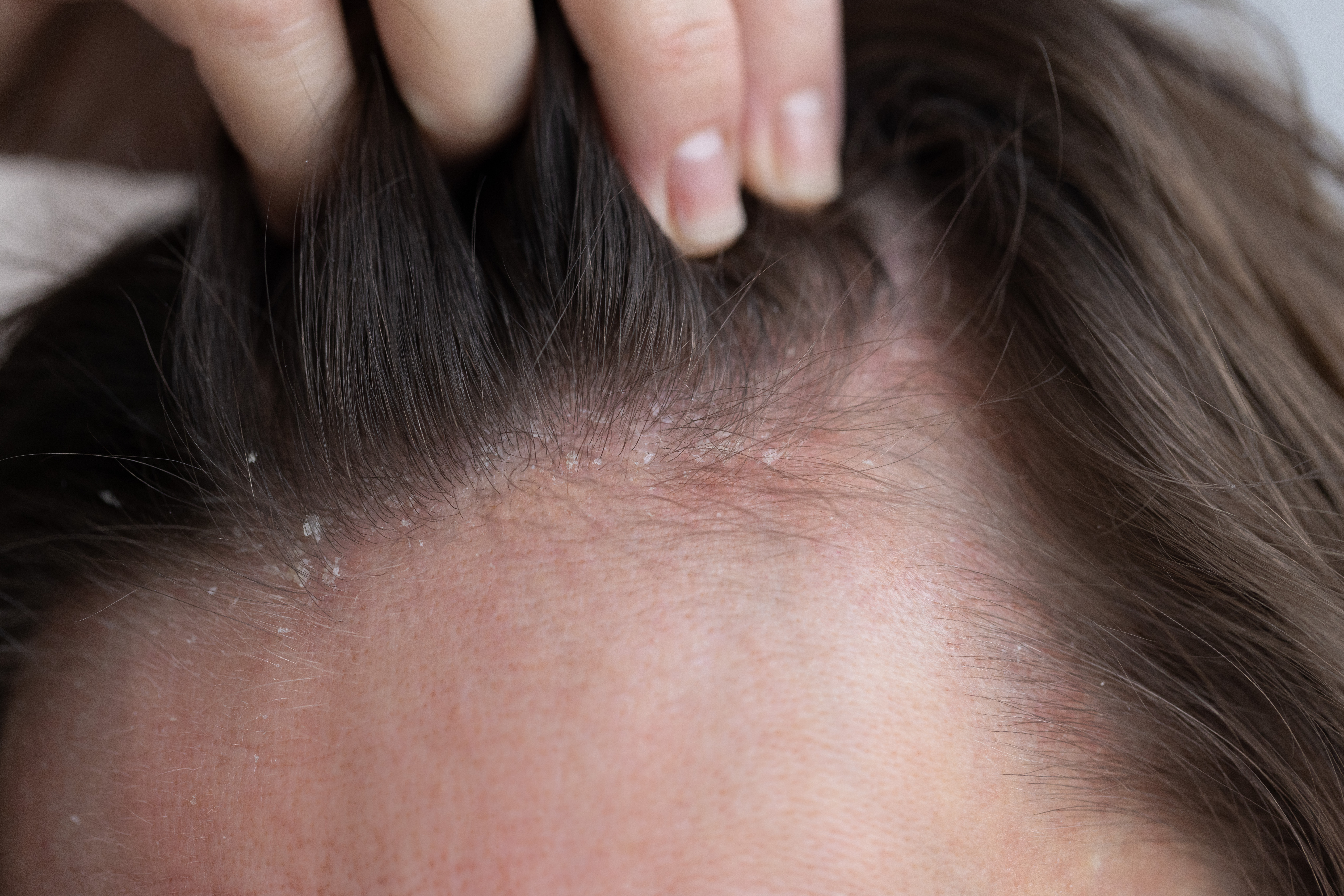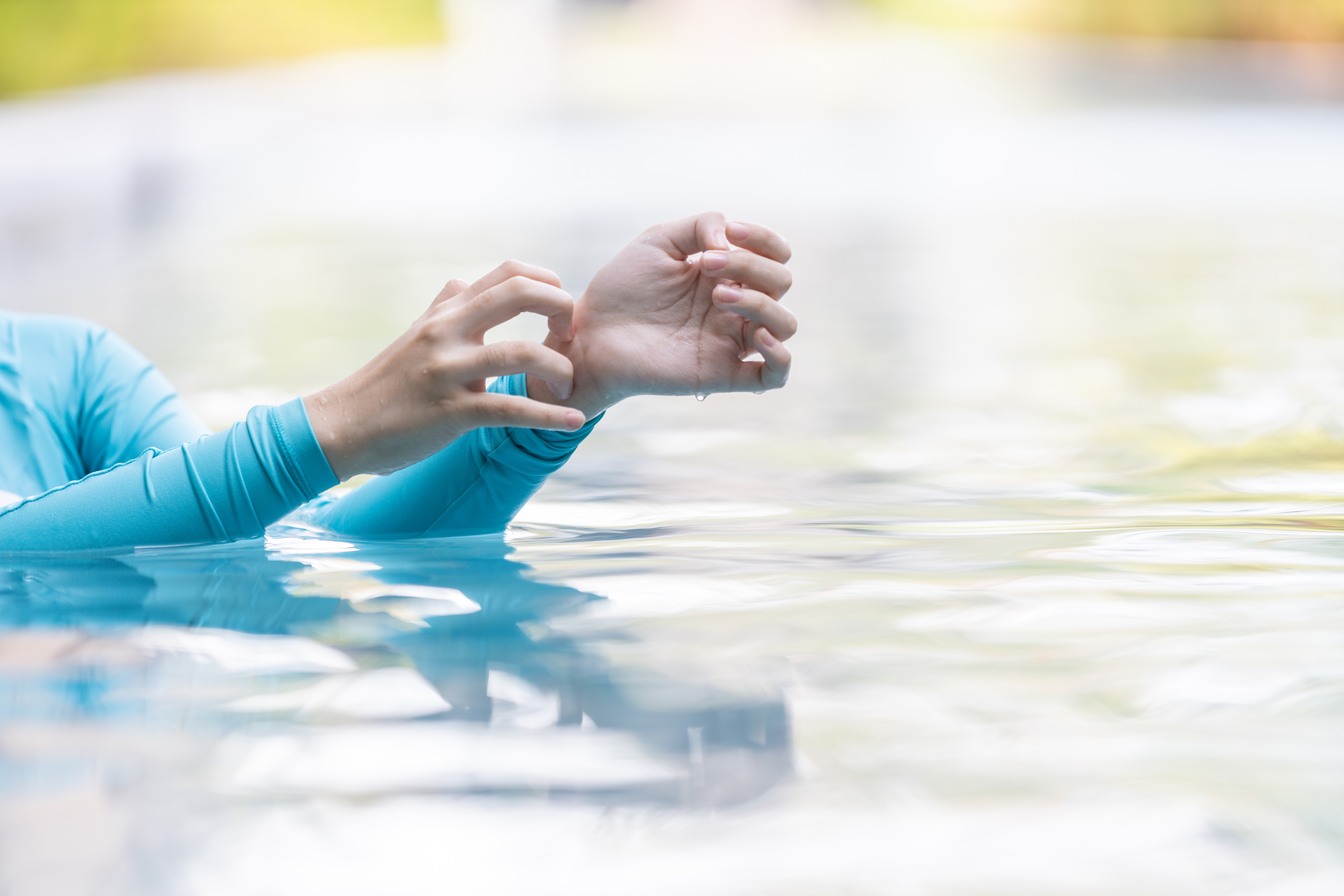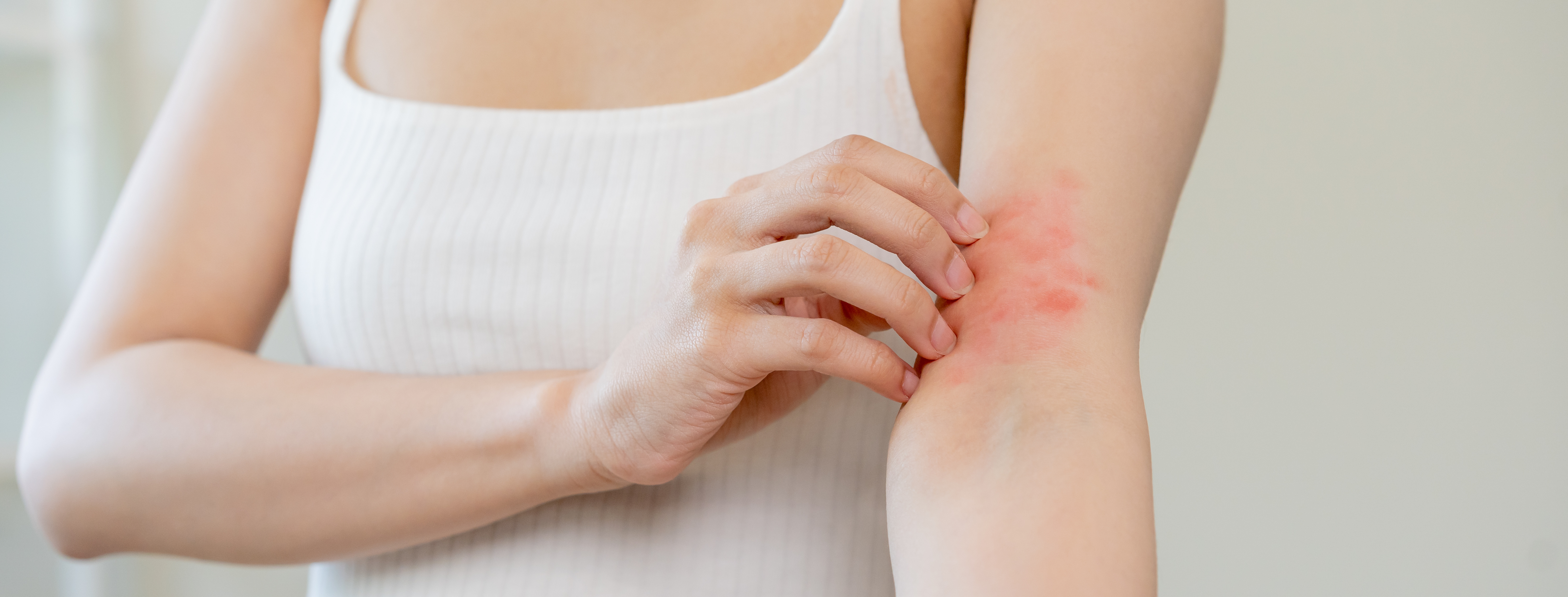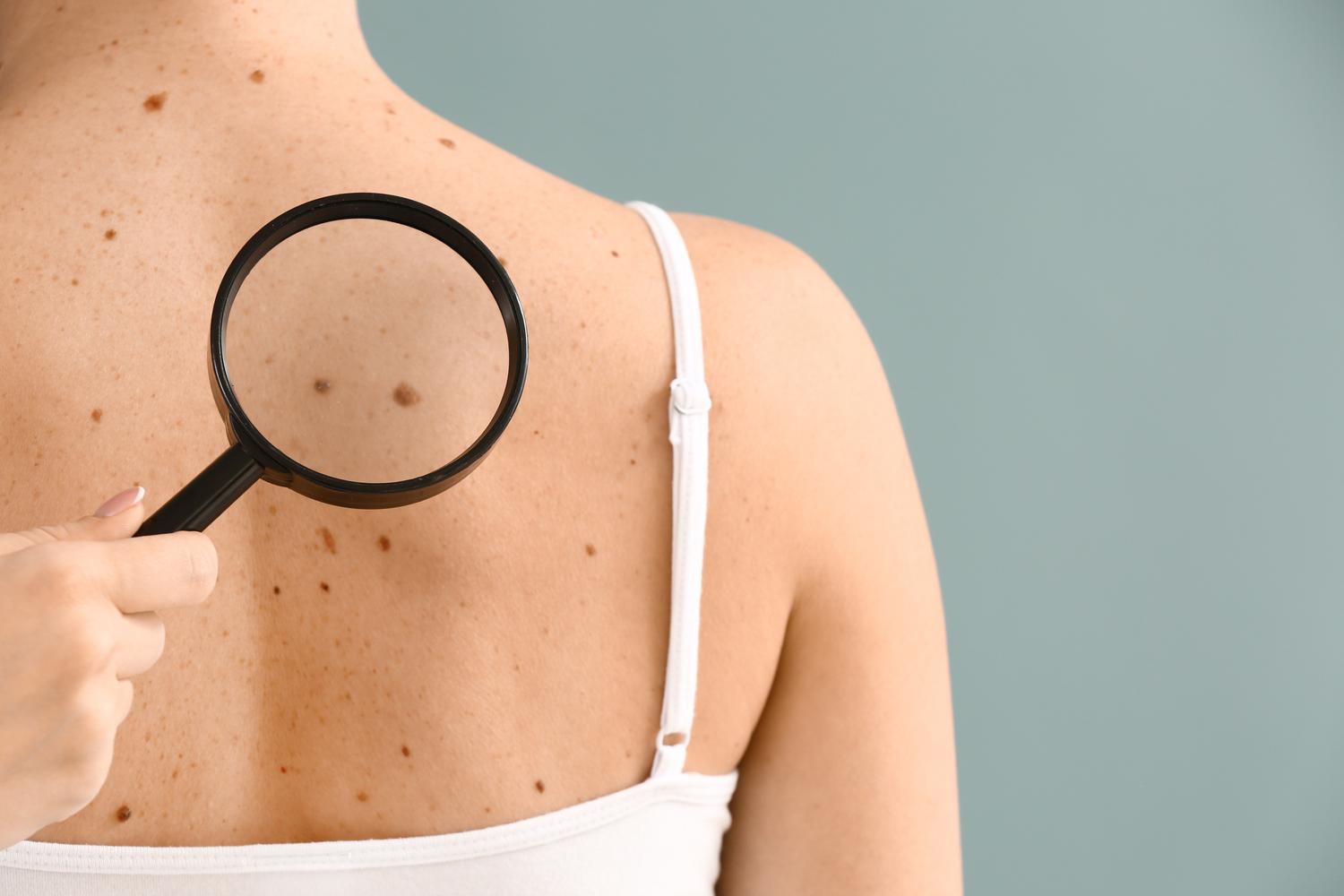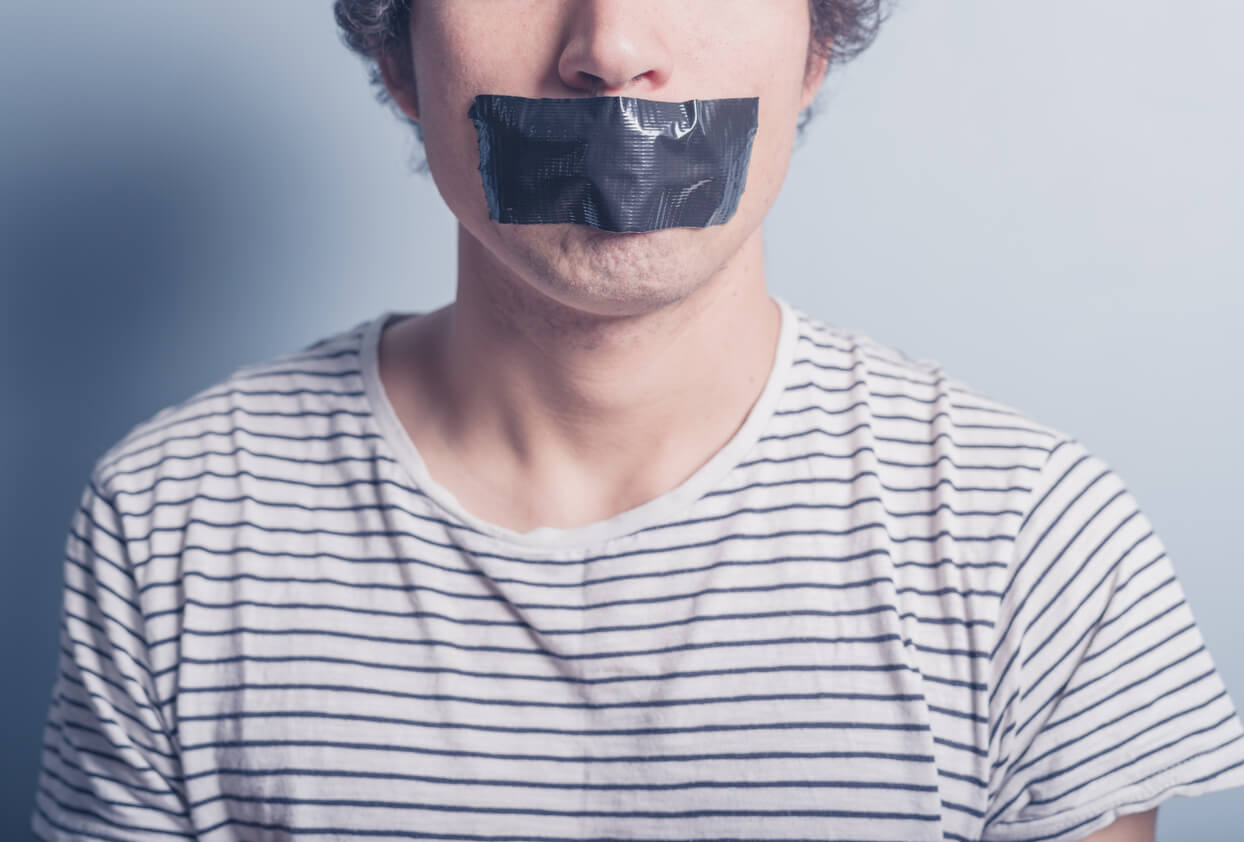Can Stress Cause Hives?
Key takeaways
- When your body experiences stress, it can release chemicals like histamine that can trigger itchy, red welts on the skin.
- Hives are likely stress-related if they appear during or shortly after periods of emotional strain and no other clear allergen or trigger is present.
- Prevention and treatment options for stress rashes includes practicing stress management techniques, avoiding known stressors, and OTC lotions or creams to sooth the skin.
Stress affects more than just your emotional health. Some people lose sleep, some get high blood pressure, and others experience red, itchy skin. Unfortunately, getting a skin rash when you’re already stressed isn’t going to help you destress—it will probably only add to your concerns.
Skin rashes caused by stress are sometimes known as “stress hives”. Read on to learn everything you need to know about this uncomfortable skin condition.
Can stress cause hives?
Stress levels can make hives worse but don't necessarily cause them. However, stress can cause a skin rash like hives. The terms “stress rash” and “stress hives” are often used interchangeably. But “skin rash” is an umbrella term for many different types of skin irritation. Hives are specifically a symptom of an allergic reaction.
“Stress generally makes any health condition worse,” says Dr. Allison Edwards, Sesame’s Medical Director. “Any chronic condition (i.e. eczema, psoriasis, seborrheic dermatitis, etc.) will get worse with stress.” This is because stress prompts your body releases to chemicals that cause these conditions to flare up.
Hives, like other conditions, get worse with stress. Studies show that stress can increase itchiness in women with chronic hives. Hives can also cause embarrassment, adding further to the stress levels. It’s a nasty catch-22: stress can make hives worse, and the worse they get, the more stress they may cause.
What’s the difference between a skin rash and hives?
Hives are a specific immune response to an allergen; in other words, they are an allergic reaction. Skin rash is a more broad term used to describe irritation of the skin.
Hives
“Hives are technically called urticaria and are a specific skin eruption due to a local histamine release,” Dr. Edwards says. “People usually get hives because of a trigger--like a bee sting or food they've eaten.” Allergic reactions are caused by your immune system mistaking these triggers as harmful. Your immune system attacks this allergen by releasing chemicals called histamines. Histamines are supposed to be helping you, but instead, they cause the symptoms of an allergic reaction. Hives is one of these reactions.
The symptoms of hives include:
- Red, raised welts
- Itchy bumps on the skin
- “Blanching” (whiteness at the center of a welt when pressed)
Common causes of hives include:
- Foods
- Medication
- Insect bites
- Allergens in the air (like pollen or dust mites)
Skin rash
“Skin rash” is a more general term used to describe irritated, inflamed skin.
Common symptoms of skin rashes include:
- Raised, red bumps on the skin
- Itchiness
- Blisters, clear or blood-filled
- Blotchiness
- Pain
- Dry or cracked skin
- Bruise-like lesions
- Lightened areas of the skin (a common symptom of fungal infections)
Common types of skin rashes include:
- Contact dermatitis
- Rosacea
- Eczema
- Psoriasis
- Impetigo
- Chickenpox
- Shingles
What does a stress rash look like?
A stress-induced rash will look a lot like hives. Stress rashes can show up on any part of the body, including the face, chest, back, legs, arms, hands and feet.
A stress rash may appear as:
- Raised red bumps on the skin
- Blotchiness (patchy red spots)
- Pink or dark-colored patches (in black or brown skin)
How to get rid of a stress rash fast
Stress rashes can be terribly uncomfortable and, frustratingly, stressful. Luckily, most cases of stress rash can be treated with a combination of home remedies and over-the-counter medications. If you can avoid scratching or irritating your rash more, it will usually clear up within 24 hours.
Home remedies
There are several self-care remedies you can try at home to reduce rash symptoms. These include:
- Apply a cool compress: Apply a cool or cold compress, like a washcloth soaked in cool water or an ice pack wrapped in a clean cloth, to the affected area. This can soothe the burning, itching feeling that accompanies skin rashes. Taking a cold shower or bath can have a similar soothing effect.
- Avoid heat: Try to avoid heat and humidity until your rash goes away. Heat and humid air encourage sweat, which can clog your pores and make skin irritation worse. Keep the air in your house cool and use a dehumidifier to pull excess moisture out of the air.
- Take an oatmeal bath: A lukewarm oatmeal bath soothes irritated skin and reduces itching.
- Use aloe vera: Aloe vera gel or lotion is commonly used to treat sunburns and heat rash. It can also soothe irritation and itching from a stress rash.
Over-the-counter (OTC) antihistamines
Stress can make hives worse. Antihistamines block the release of histamine, which reduces the inflammation, swelling, and itching symptoms of hives.
Recommended OTC antihistamines include:
- Allegra (fexofenadine)
- Zyrtec (cetirizine)
- Claritin (loratadine)
- Benadryl (diphenhydramine)
Benadryl can cause drowsiness, so it’s recommended that you only use it at night. Do not operate machinery or vehicles after taking Benadryl.
Medicated creams and ointments
There are several OTC creams and ointments you can use to reduce the itching and discomfort from a stress rash.
Recommended OTC creams and ointments include:
- Corticosteroid creams and lotions(use a thin layer up to 2–3 times daily for up to a week unless a doctor advises longer)
- Calamine lotion
- Pramoxine cream
- Moisturizing creams like CeraVe, Aquaphor, Eucerin or Aveeno
- Cooling gels with aloe or menthol
How to prevent stress rashes
We all get stressed from time to time, but there are some steps you can take to prevent your skin from getting worse.
Manage your stress with self-care
If stress and anxiety are causing your skin to flare up, practice these self-care techniques to reduce your stress.
Stress-reduction strategies include:
- Seeking mental health care: Talking to a mental health care provider is a great way to work through the parts of your life that are causing you stress. Therapy and mental health care aren’t just used to address trauma or mental illness. These visits also provide an outlet for working on your daily stressors, relationship challenges, work issues, and more.
- Practicing mindfulness and deep breathing: Mindfulness and deep breathing are pillars of meditation. They are also effective for reducing stress and anxiety. You don’t need to be versed in meditation to be able to work these tools into your daily life.
- Biofeedback: Biofeedback therapy is a noninvasive process for controlling your body’s response to stress and discomfort. During a biofeedback session, a provider connects one to a piece of monitoring equipment through electrical pads. The equipment measures involuntary functions like breathing patterns, heart rate, and muscle tension.
Providers use the feedback from the machine to get an understanding of how your body responds to stress. Biofeedback sessions often take about 30-60 minutes. You can undergo biofeedback therapy in physical therapy clinics, medical centers, hospitals, or at home. Biofeedback sessions usually start at $35 for one session. The exact cost of your session will depend on the clinic. - Practicing healthy habits: A healthy lifestyle is important for overall wellness, but it can also help reduce stress. Healthy lifestyle habits include exercising regularly, staying hydrated, getting 7-8 hours of sleep a night, limiting social media time, and eating healthy. You may also want to consider avoiding alcohol, tobacco, and recreational drugs.
Avoid skin rash triggers
While you are working to reduce your stress, it’s also helpful to address physical triggers for skin irritation. You can avoid further irritation these simple steps:
- Use gentle, unscented skincare products and soaps
- Use fragrance-free moisturizer to keep your skin hydrated and healthy
- Avoid using very hot water for showers, baths, or face rinses
- Wear breathable, loose-fitting clothing
- Use sunscreen with an SPF strength of 30 or higher when going outdoors
When to see a doctor
Most stress rashes will go away within a day or two. Chronic rashes or chronic hives, however, may require more advanced treatment. Try using the stress management and treatment options listed above to see if you can get rid of the rash on your own. If you experience a rash that lasts longer than a few days, seek medical advice from a healthcare provider.
How Sesame can help
If you're concerned about a skin rash and need a medical opinion, you don't need to wait weeks or month to see a doctor. With Sesame, you can book a same-day video dermatology visit right away, no referrals necessary.
Sesame connects you with licensed dermatologists and specialists at low cash prices, so you can get high-quality, affordable skin care right away without jumping through insurance hoops. Your provider can review your rash during the call, offer treatment options, and prescribe medication if appropriate.

